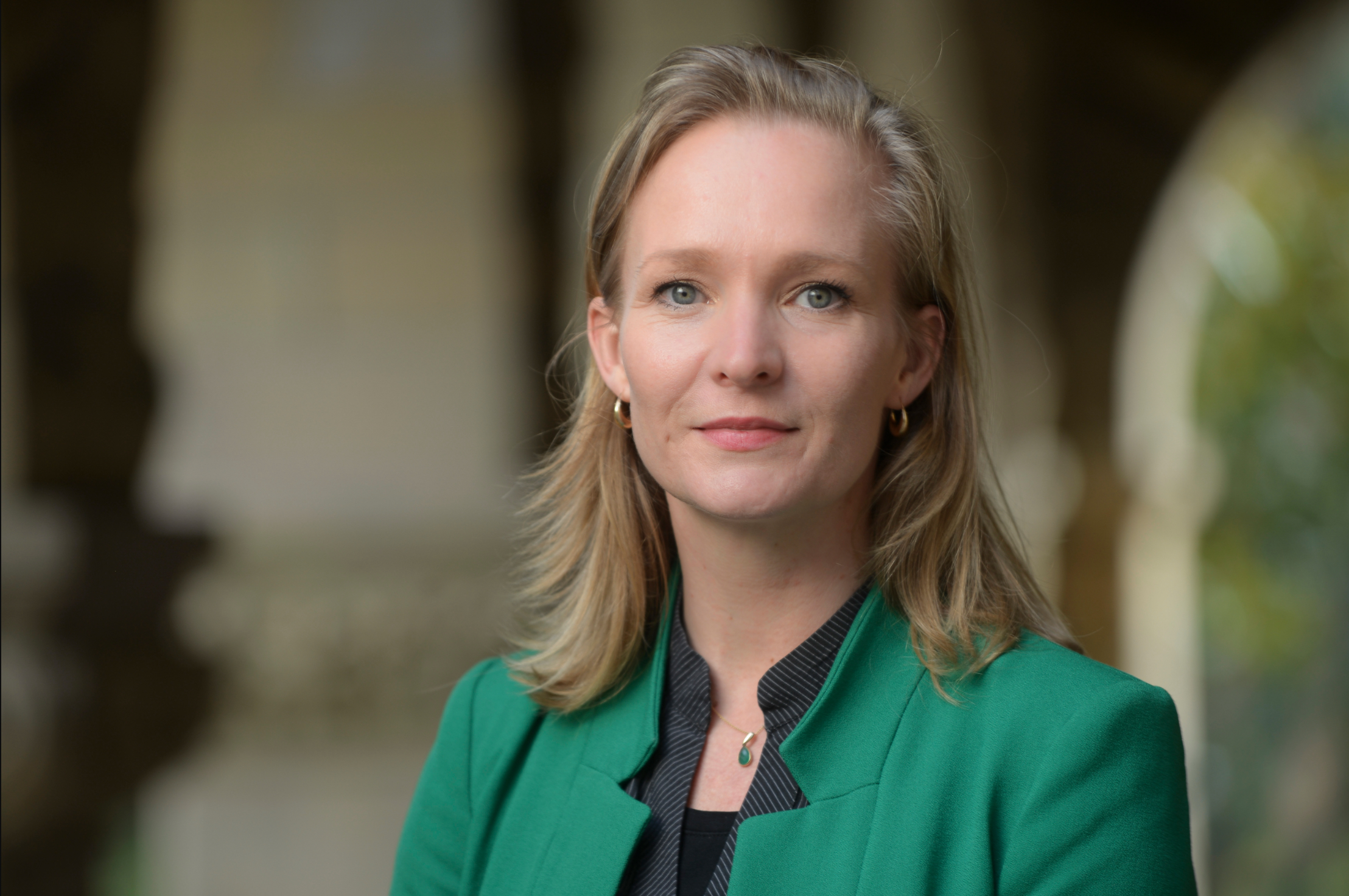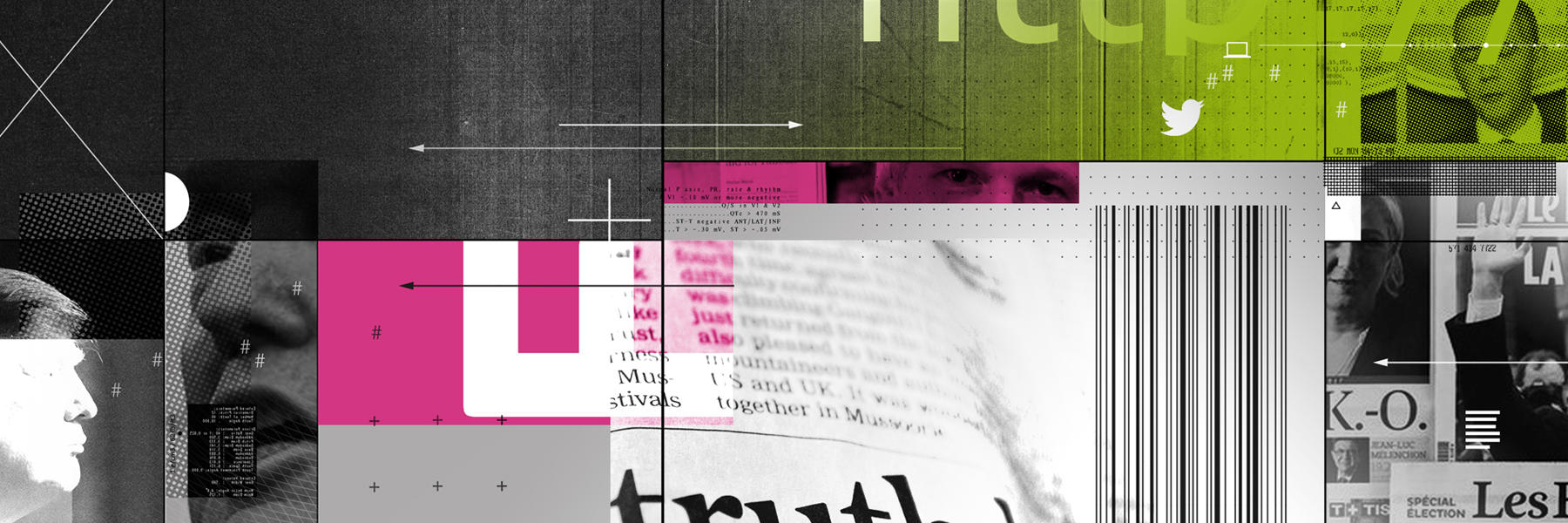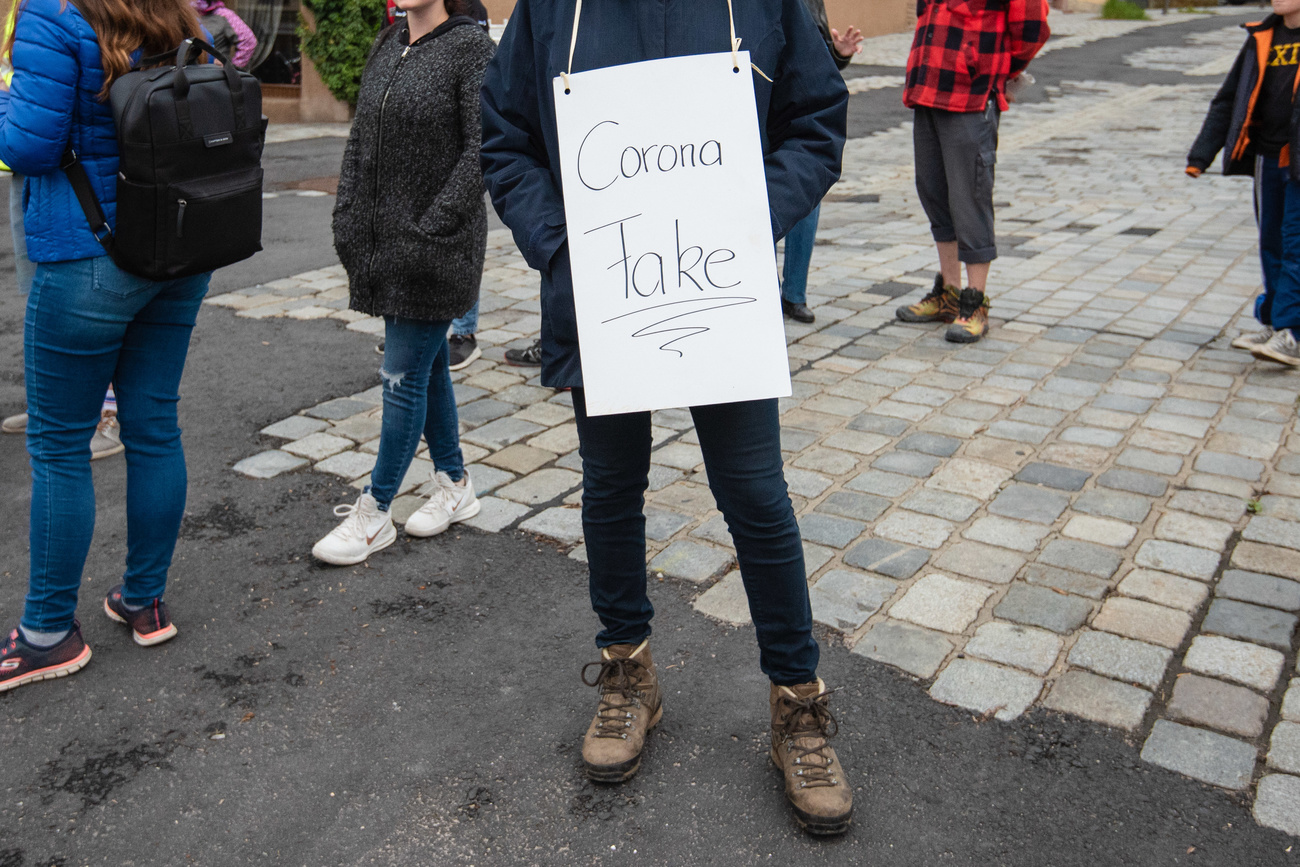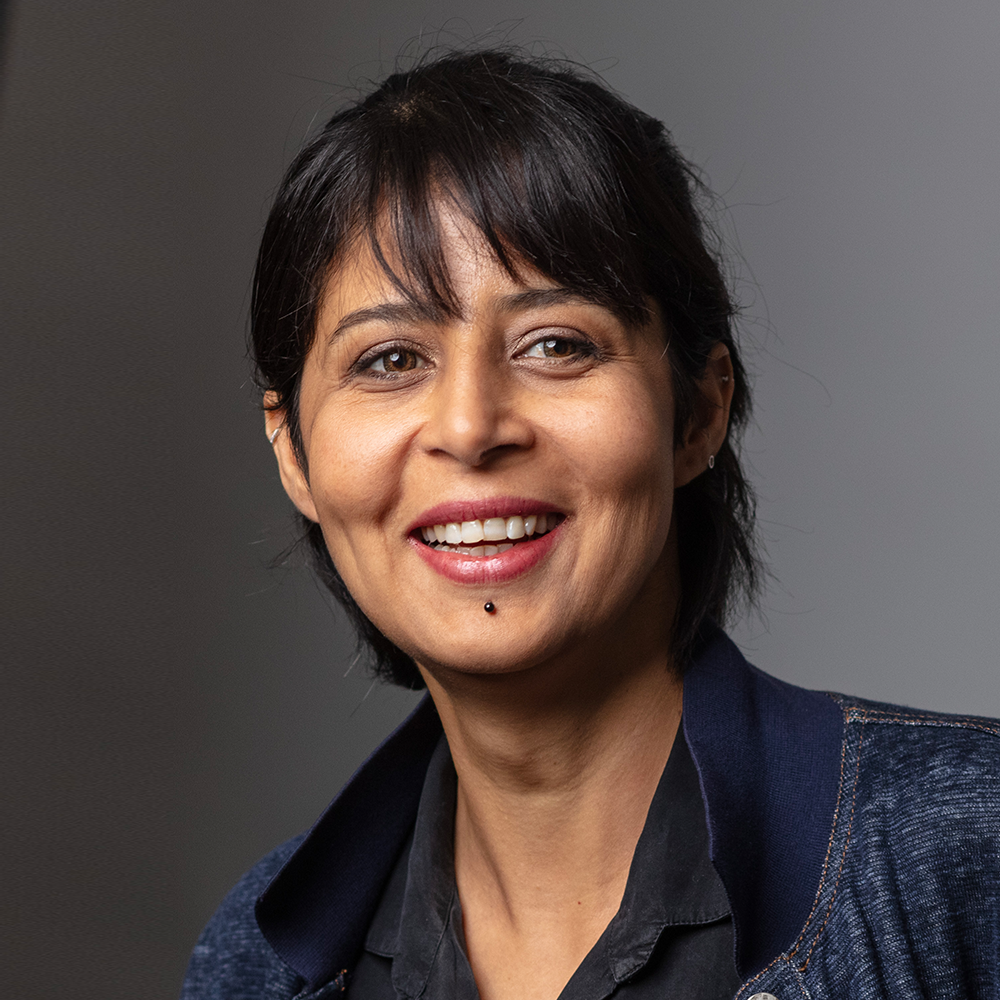
Cyber expert warns of dangers of unregulated social media

The establishment of an alternative reality is gaining ground in political and activist groups from both the left and right sides of the political spectrum. Whether they are QAnon conspiracy supporters, deniers of Covid-19, climate change, or vaccine science, many activists are finding support online through social media.
SWI swissinfo talked to Marietje Schaake, president of the Cyber Peace Institute in GenevaExternal link and the international policy director at Stanford University’s Cyber Policy CenterExternal link, about the unprecedented social and political challenges in our digital era and the future of balance of power between states and tech companies.
SWI swissinfo.ch: For years you have been calling for more regulations on social media platforms. What do you see as the most urgent tasks to be implemented?
Marietje Schaake: There’s one underlying issue that needs to be addressed: transparency and access to information. For researchers, regulators or journalists, it’s very hard to know exactly how the algorithms designed by social media use and filter the information, what data is collected and who it is targeting.
I think we need to have more scientific, independent research in order to understand both intended and unintended consequences of these models. Without access to this information, it’s very difficult to know whether people’s rights are being bypassed and if companies are even respecting the terms of use and the limitations or standards and bans they have set themselves.
SWI: Could we imagine similar regulations like those for the banking systems regarding transparency and accountability?
M.S.: Yes, I think that’s the right direction of thinking. On the one hand, clear obligations and standards on the part of companies and on the other hand, serious sanctions in cases of violation. We also need oversight from bodies and regulators that have the knowledge, the mandates and the capacity to really enforce and to probe. You mentioned banking, but we can also think of regulations similar to those in the pharma sector, the chemical industry or the car industry.
“There’s also the big challenge of freedom after expression that one can see in countries with repressive regimes”
SWI: Facebook has started setting up oversight committees. But how can hate speech be controlled on a platform with more than two billion users, not to mention all the platforms that are even less controlled? How can democracies react quickly enough in order to prevent violence in the public space?
M.S.: I think it will have to be a combination of factors. In most European countries, there are exceptions to the freedom of expression, even though they are very narrow, thankfully. There are limitations when it comes to inciting hatred or violence, or denying the Holocaust. This can actually help create clarity on what is legal and what is illegal. What is more challenging is when the behavior of certain people, those who believe for instance in conspiracy theories, has a harmful impact, without breaking the law.
For example, on public health when it comes to fighting Covid. In that case it is important that there is oversight and an understanding of the proliferation of these theories and the impact on they have society as a whole. Self-policing is not enough. We have yet to set the rules, oversee and enforce them. We hardly ever hear of people being convicted in that context. The consequences of unregulated social media became unequivocally clear after the attack on the US Capitol on January 6th. This was a wake-up call for many people: online speech doesn’t stay online, it has real world impact.
SWI: It was unprecedented for private companies to suspend the social media account of a president in power. For some it came too late, for others it was a violation of his freedom of speech. What does this mean for the future balance of power between the state and private companies?
M.S.: What is interesting is that now we are having this big discussion about whether these decisions were good or bad. But in both cases – if they leave the accounts up or take them down – it shows how much power these companies have. They are too powerful, especially the giant players who run social media platforms and search engines. They are capable of not only moving masses of consumers, but also moving masses of voters. This is becoming more and more clear and this power now has to be addressed.
SWI: These platforms also played a decisive liberating role, for example during the Arab Spring. Do we maybe have to accept that they are a double-edged sword and to believe in the power of free democratic values and simply in human common sense?
M.S.: What tends to be forgotten in this discussion is that we are not just talking about speech. We are talking about amplification, the ability to pay for more visibility, the ability to trick the system. Just looking at the question of freedom of expression without looking at how certain actors are involved is missing the point. For example: it matters whether somebody is trying to attract an audience with a conspiracy theory or whether it is a journalist who writing about a conspiracy theory. You also have these botnets, people pretending to represent different voices while they are in fact empty accounts, or a foreign intelligence service trying to push a certain message in an untransparent way into the discussions in another country.
“Tech companies are capable of not only moving masses of consumers, but also masses of voters. This is becoming more and more clear and this power will have to be addressed”
We have freedom of expression and we really should cherish that. But there’s also the right to freedom from being discriminated or freedom from violence. And if the freedom of expression is clashing, as it is now, with those other rights or state obligations, then the question has to be deliberated. That will hopefully happen on a democratic basis and not on a commercial interest basis.

More
How Switzerland has responded to online disinformation
SWI: The Capitol riot was the embodiment of this. Over 70 million people voted for Trump, with some believing in his “alternative facts”. How can trust in the government and official channels be reestablished?
M.S.: We are really talking about a chicken and egg story here, because when the president of the United States is falsely claiming that the electoral process was fraudulent and that there was a theft of his victory, then we should not be surprised that a certain percentage of people is going to believe him. I think the most damaging effect of what we have seen over the past four years is insider attacks on democracy. You mentioned the Arab Spring, where young people were engaged in peaceful demonstrations for democracy. We now see attacks on democracy from people who have actually enjoyed all the freedoms that come with it. I think this is a huge challenge.
What has also led to this is that so many conspiracies and other allegations have gone completely unfiltered and unchecked for so long. Hopefully some Americans have had a wakeup call in seeing what the fuelling of lies, hatred and violence actually leads to. To re-establish trust, there needs to be a combination of a variety of factors: proper law enforcement as well as investment in media and journalism for proper oversight. We also need broader reporting on what local authorities are doing as well as antitrust measures to allow more competition and more choice for the consumers, of what kind of platforms they want to be a part of. And finally, the transparency I talked about earlier should also help internet users to understand better what commercial manoeuvres internet users are subject to.

More
Why a pandemic is the ideal breeding ground for fake news
SWI: Do you think that European countries – including Switzerland – could run a similar risk? After all, we are also witnessing the rise of movements against Covid-19 measures, against vaccinations and against climate change, fuelled by conspiracy networks?
M.S.: It is not a risk, it is a reality. In all of our societies people are spending more time online and the times are much more uncertain because of the global pandemic. Even in Switzerland you are able to observe how powerful the far right has become. It is something we should all be vigilant about. It would be naive to just look at the other side of the ocean and think that this is an American problem.
A fierce public debate is not a problem. But when it becomes deep polarisation that borders on hatred and dehumanising of people with other opinions, then there is a growing risk of escalation.
SWI: The danger of abuse of these platforms by governments is also concerning. Some states have used social media to identify and arrest citizens, for example Bahrain during the Arab Spring. How can companies and democracies solve this dilemma?
M.S.: It has been shown over and over again that governments use these platforms to engage in propaganda themselves, like for example Iranian leaders. But there’s also the big challenge of freedom after expression that one can see in countries with repressive regimes. The ability to express oneself is one thing, but the problem are the consequences that the people face afterwards, for example the democracy activists in Hong Kong or peaceful demonstrators in North Africa and the Middle East. They were given easy access to these social media platforms, who themselves did not at all consider the huge risks people would face when sharing their opinions or organising a demonstration or a gathering. In other words, the context within which these platforms are used is incredibly important to consider.
We need to be concerned about societies where the rule of law is not respected at all and where people are basically left to the mercy of the authorities that are known to be repressive.

More
Resisting Covid-19 ‘fake news’ with a high dose of public trust
SWI: In these terms, how can democracy be guaranteed and not run the risk of adapting the Chinese model of dealing with social debates online?
M.S.: Sadly, we already have a few examples of authoritarianism in Europe; Hungary is moving in the direction of restrictions, so is Poland. We should never pretend that we can rest and be happy with the state of our governance system and the state of our democracy. It needs constant work.
SWI: Is there international collaboration to somehow regulate the tech sector?
M.S.: The EU indeed is working on a number of regulatory proposals for digital services, like the Digital Markets Act, the Digital Services Act and the Democracy Action Plan. There are already data protection regulations, aimed at limiting the scope of social media companies to collect data and to use it for political advertising.
The administration of Joe Biden will have a lot on its plate after the Capitol Hill riots. He has already announced that he wants to organise a democracy summit and that technology related topics would feature high on the agenda. I think it is time for better cooperation between democratic countries and for them to set common standards. For sure, there is a lot that needs to be done in international cooperation.

In compliance with the JTI standards
More: SWI swissinfo.ch certified by the Journalism Trust Initiative






























Join the conversation!